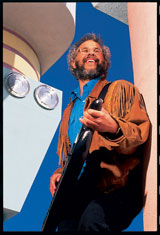|
|
Can We Still Count on the Big Five? |
September 2004 |
|
A half-dozen years ago, there were five major developers of professional digital audio sequencing software. At one time, all were privately held companies focused primarily on music technology. The initial Big Five was made up of Cakewalk, Emagic, Mark of the Unicorn, Opcode, and Steinberg. Opcode ran into trouble, was purchased by Gibson, and died. However, Digidesign has recently added increasingly sophisticated sequencing features to Pro Tools, and has replaced Gibson. In recent years, three of the Big Five have been purchased by publicly traded companies that are focused more on video than on music applications. Should we be concerned?
A trend started when Avid, a maker of pro video-editing products for Windows, bought Digidesign. The Avid-Digidesign combination still receives mixed reviews within the music industry, but Digidesign continues to be a leader in the DAW market, and its key products remain cross-platform. Unless Avid completely blows it, I see no immediate need for concern there. On the other hand, at Winter NAMM 2003, Windows video-software developer Pinnacle Systems announced that it had bought Steinberg. To date, the integration of Steinberg into Pinnacle has been rough going. Fortunately, Steinberg seems to be still very much in the game, but Pinnacle's efforts have been unimpressive. I choose to be optimistic, but the jury is out.
When Apple Computer, whose line includes video editor Final Cut Pro, bought Emagic and its Logic sequencer, Apple immediately ended development of Logic for Windows, but the deal has been good for Mac users so far. Apple has not only continued to develop Emagic technology, it has developed additional music technology within OS X, in its Soundtrack audio editor and in its GarageBand consumer-level sequencer.
Cakewalk is the only one of the Big Five to focus almost entirely on the Windows platform. The company is still privately owned, but Roland (a publicly traded company) bought a minority interest in Cakewalk late last year. Roland, of course, is almost entirely a music-technology company, and its investment in Cakewalk is likely to result in creative synergies.
Of the Big Five sequencer companies, only Mark of the Unicorn remains both completely independent and privately owned. MOTU now has to compete with companies that have potentially deeper pockets than it has, but its leadership can steer their own course without concern about interference from a parent company.
Admittedly, there are no guarantees for the future. Pinnacle, in particular, still has to prove itself in the music-tech industry, and as noted, Apple can be hard to predict. But I think that those who projected gloom and doom may have been too hasty. At this point, all five professional sequencing products look healthy, and unless Steinberg is in worse shape than I think, all of the Big Five appear to have solid opportunities for future success. |
